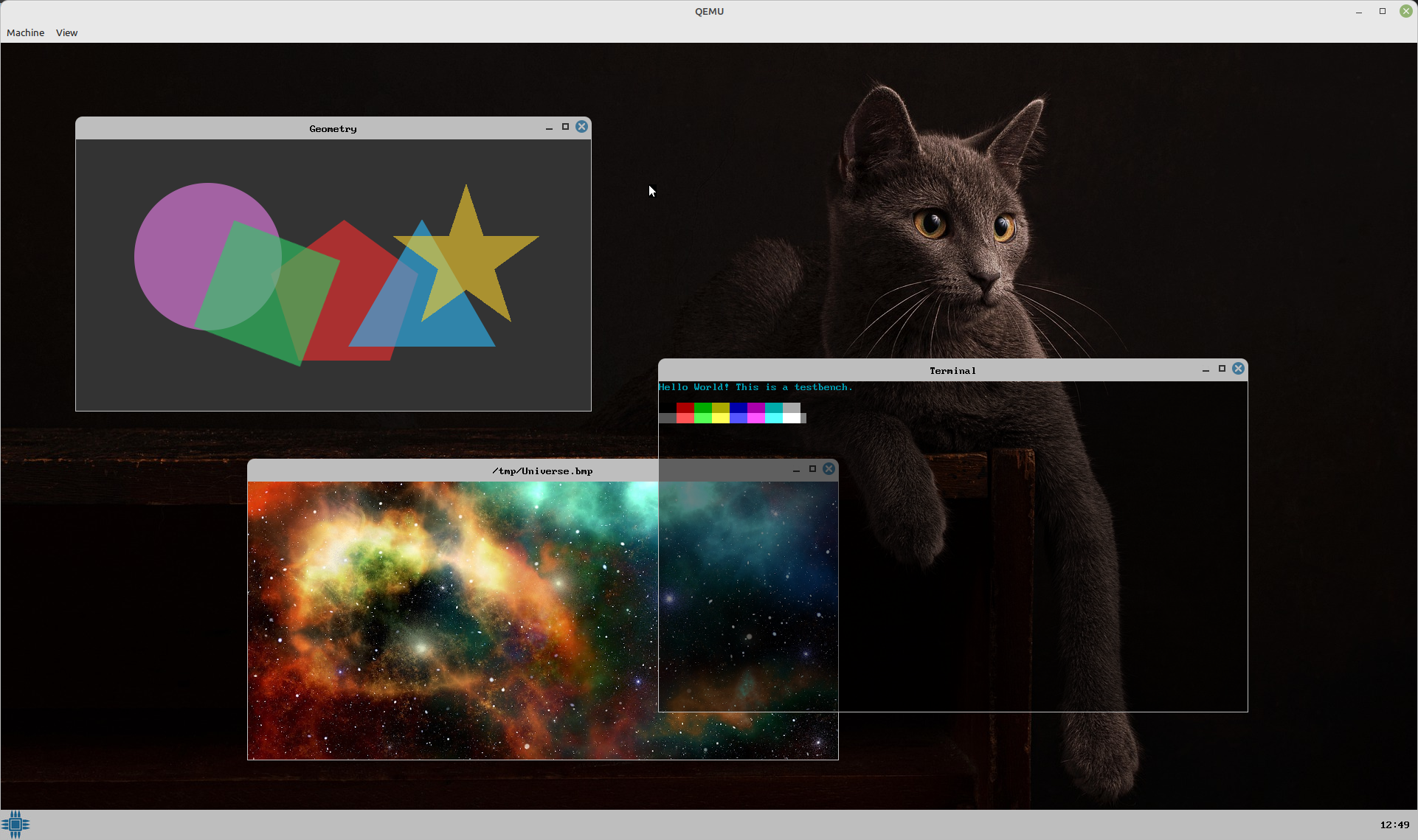Tellurium is a modern operating system written in C/C++ booted using the Limine protocol. Tellurium's kernel is written in C, targeting x86_64 machines.
- To design a usable and self-hosting system that runs on real hardware.
- To keep design choices compliant with POSIX standards.
- To port well-known programs over to Tellurium.
- Architectures
- x86_64.
- SMP system
- Kernel objects and structures are SMP-aware and use locking mechanisms for synchronization.
- Kernel Logging
- Per-core information dumped over a graphical terminal and serial communications.
- Scheduling
- Round-robin scheduling.
- Process as resource container for programs.
- Thread as entity scheduler for execution.
- Device Drivers
- Interrupt routing and timers: IOAPIC, LAPIC, HPET, PIT.
- Machine-specific registers: MSR.
- Keyboard and mouse: PS/2.
- File System
- Virtual File System.
- tmpfs and devfs file system drivers.
- Memory Management
- Page Frame Allocator (4kB aligned allocations).
- Virtual Memory Manager: Higher half kernel, demand paging.
- Kernel heap: Slabs for small and large object allocations.
- IPC
- Event-driven logic (observer pattern, threads have listeners).
- Unix domain sockets.
- Syscall handling
- POSIX-compliant system call implementations.
- Windowing Server
- For custom user applications and ported software.
- Written in C++: allows for implementation of derived window utilities: buttons, images, text boxes, terminals, etc.
- Window occlusion and dirty region algorithms to enhance performance.
- Tellurium library
- Provides useful functions: device polling, syscall wrappers, user memory allocations, and program bootstrapping.
- Terminal Module
- System independent terminal emulator that supports escape sequence and ANSI codes.
- flibc
- Freestanding libc functions.
- GNU make for compiling the source.
- An installation of Limine bootloader version 3.19.
- Xorisso for generating a bootable ISO.
The installation of the bootloader should be in the same directory as Tellurium's parent. In the main directory, run the following command to compile and build the ISO:
tellurium-os$ makeTo run the bootable ISO using QEMU, type:
tellurium-os$ qemu-system-x86_64 -cdrom tellurium.iso -M q35 -m 2G -boot d -enable-kvm -cpu host -smp 2The 'm' and 'smp' flags can be adjusted to change the total system memory and processor cores present, respectively. Leave KVM enabled

